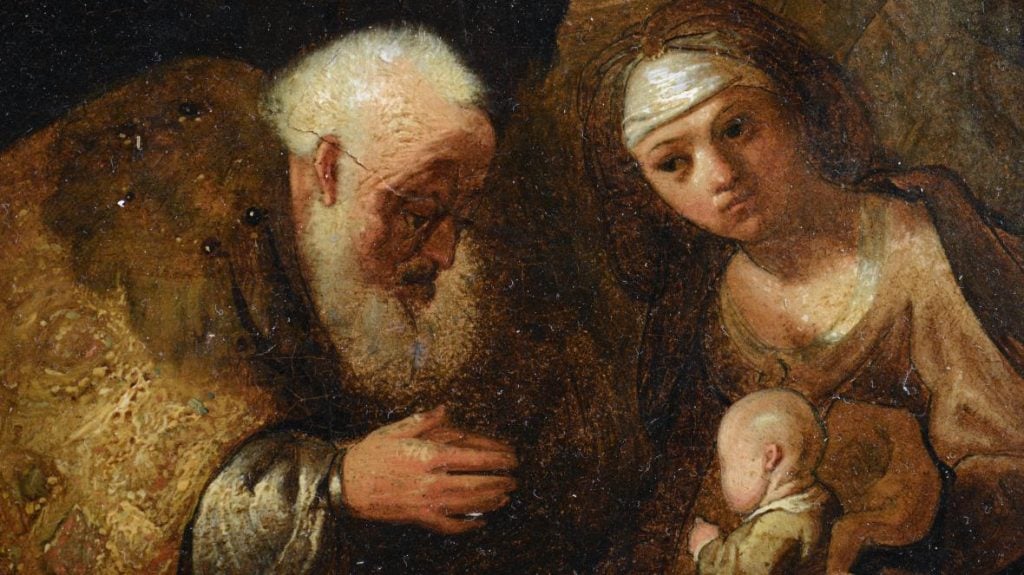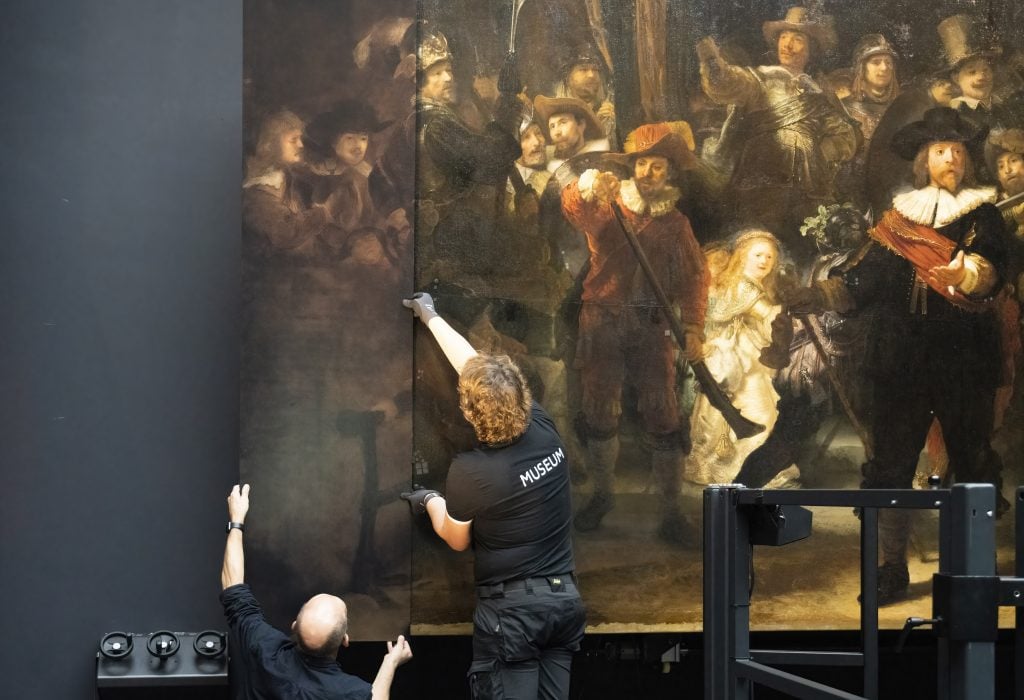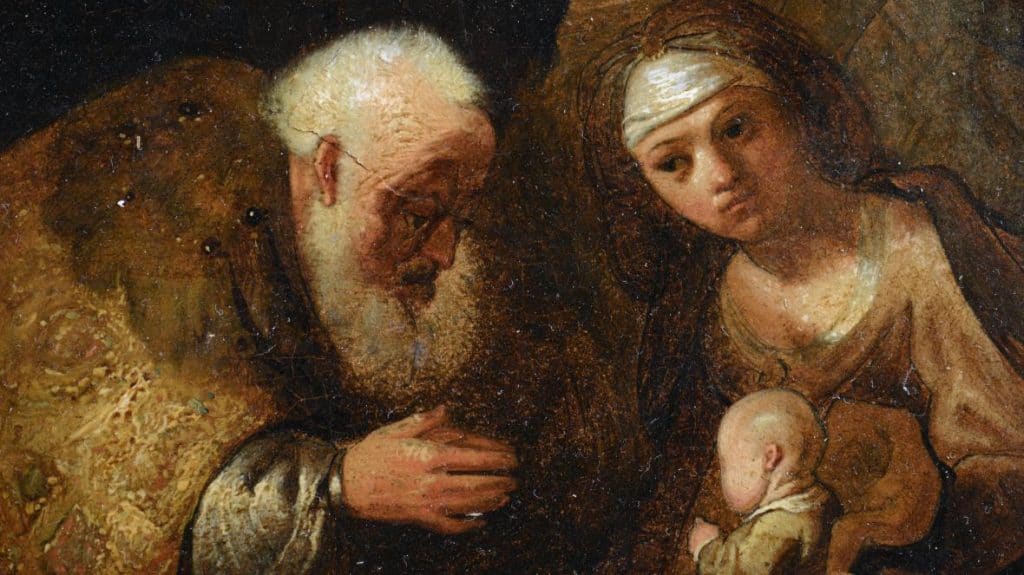The discovery was announced at a symposium held at Villa Medici, the French Academy in Rome.

Art historians have discovered a long-lost painting by Rembrandt van Rijn in Rome.
The painting, The Adoration of the Magi, is believed to date from 1632 to 1633. Scholars had long believed that only copies of the picture had survived, including well-known examples in Gothenburg, Sweden, and St. Petersburg, Russia.
The work had long been in the collection of a family that had no idea it was a genuine Rembrandt, until 2016, when art restorer Antonella di Francesco took it in for repairs after it fell off a wall.
“It’s a thrill that has no equal,” Di Francesco said in a statement of the discovery.
Art historian Marco Mascolo unveiled the newly attributed painting at a Rembrandt symposium at Villa Medici in Rome.

Rembrandt van Rijn, The Adoration of the Magi (1632–33), detail. Courtesy of the Fondazione Patrimonio Italia.
During the restoration, Di Francesco cleaned away centuries of varnish to reveal the work’s original luminous colors, confirming her suspicion that it was a real Rembrandt.
“Finding a Rembrandt in Italy is not something that happens every day,” Guido Talarico, the president of the Italian Heritage Foundation, which organized the symposium, told the London Times.
The family that owns the work plans to keep it, but will lend it to museums and galleries, Talarico told CNN.
According to ANSA, an Italian news agency, the work’s potential value is between $83.7 million and $239 million (€70 million to €200 million). Rembrandt’s auction record stands at £20.2 million ($33.25 million) when a work by the artist sold in 2009 at Christie’s London, according to the Artnet Price Database.

The process of reconstruction of the trimmed edges of Rembrandt’s The Night Watch. Photo: Rijksmuseum/Reinier Gerritsen.
It’s been an exciting week for fans of the Dutch Golden Age artist, as the Rijksmuseum in Amsterdam unveiled a recreation of Rembrandt’s The Night Watch using A.I. to recreate fragments of the massive canvas that had its edges trimmed over 300 years ago.
And last year, two possible new Rembrandt works came to light: one thought to be a copy owned by the Ashmolean Museum in Oxford, and another at the Allentown Art Museum in Pennsylvania that was previously dismissed as a work by the artist’s workshop.
